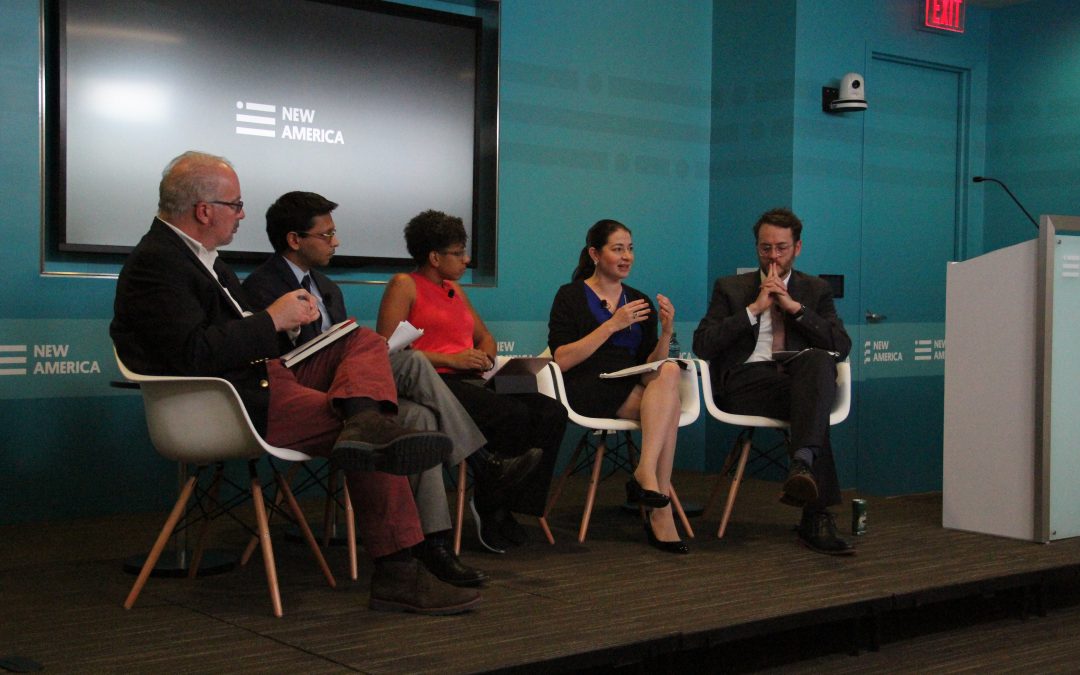WASHINGTON — A book released Tuesday details how the political climate today in many ways resembles the time immediately preceding the Franklin Roosevelt presidency and the opportunities that presents American democracy.
Sabeel Rashman, a former official at the Office of Information and Regulatory Affairs and researcher on democratic governance and economic policy, spoke at New America about lessons from his book, Democracy Against Domination, for this election cycle and America going forward.
Although he started the book long before Donald Trump was a serious contender for the GOP nomination, Rashman argued the direction of America for the rest of 21st century is being decided now.
“Everything feels up for grabs right now,” he said. “The decisions we make now will shape what America looks like over the next many decades.”
In many ways, Rashman argues, the Roosevelt Administration’s New Deal shaped American policy for decades, taking the public vs. private struggle and elevating it to a new level. What emerged was a reformed capitalism, with real restraints on business for the first time and more protections for consumers. This view of the role of government would pervade for the next several decades and Rashman sees the current political environment as ripe for a similar, long-lasting decisions.
Rashman sees three parallels between then and now: too much private sector power, laws and policies that govern the private sector are not subject to enough scrutiny and the public feels it has no way to check the forms of power.
“The opportunity right now is bigger than this election,” he said. “It’s a similar moment to the 1910s and 1920s. We can set the deck for what the rest of the 21st century looks like.”
However, there are pitfalls from the New Deal Rashman warns against for future policies. At the book release, he urged policymakers to “resist the temptation to turn back the clock and do a new New Deal.” Policies going forward must economically inclusive in ways the New Deal was not, he said.
“It’s on us to see if we can make an inclusive, democratic new deal,” he said.
Another panelist at the event, Shayna Strom, echoed Rashman’s beliefs about creating a democracy everyone buys into, one where people believe they can affect change with their vote.
“Democracy has to be an action,” she said. “It’s the actions that we take and the ways that we engage so we can offset the economically powerful.”

